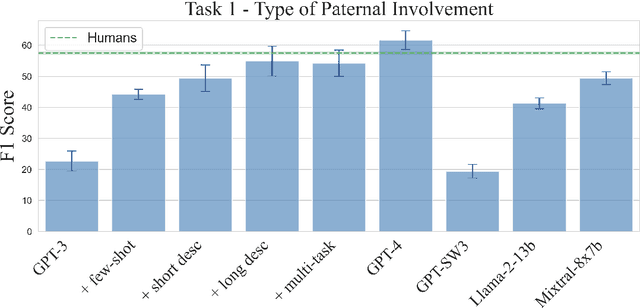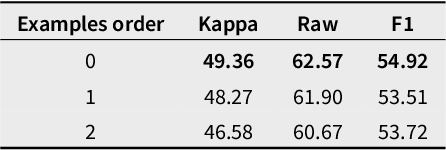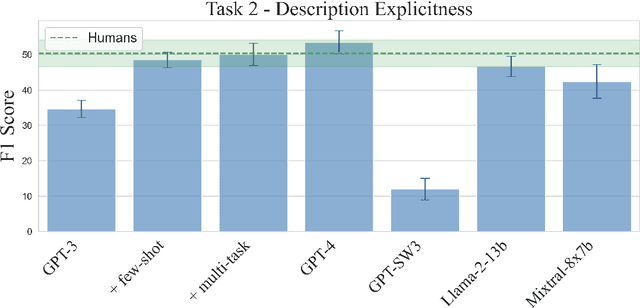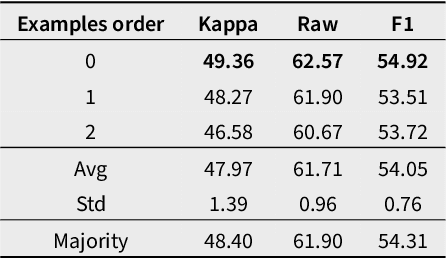Oscar Magnusson
How to Use Large Language Models for Text Coding: The Case of Fatherhood Roles in Public Policy Documents
Nov 20, 2023



Abstract:Recent advances in large language models (LLMs) like GPT-3 and GPT-4 have opened up new opportunities for text analysis in political science. They promise automation with better results and less programming. In this study, we evaluate LLMs on three original coding tasks of non-English political science texts, and we provide a detailed description of a general workflow for using LLMs for text coding in political science research. Our use case offers a practical guide for researchers looking to incorporate LLMs into their research on text analysis. We find that, when provided with detailed label definitions and coding examples, an LLM can be as good as or even better than a human annotator while being much faster (up to hundreds of times), considerably cheaper (costing up to 60% less than human coding), and much easier to scale to large amounts of text. Overall, LLMs present a viable option for most text coding projects.
 Add to Chrome
Add to Chrome Add to Firefox
Add to Firefox Add to Edge
Add to Edge